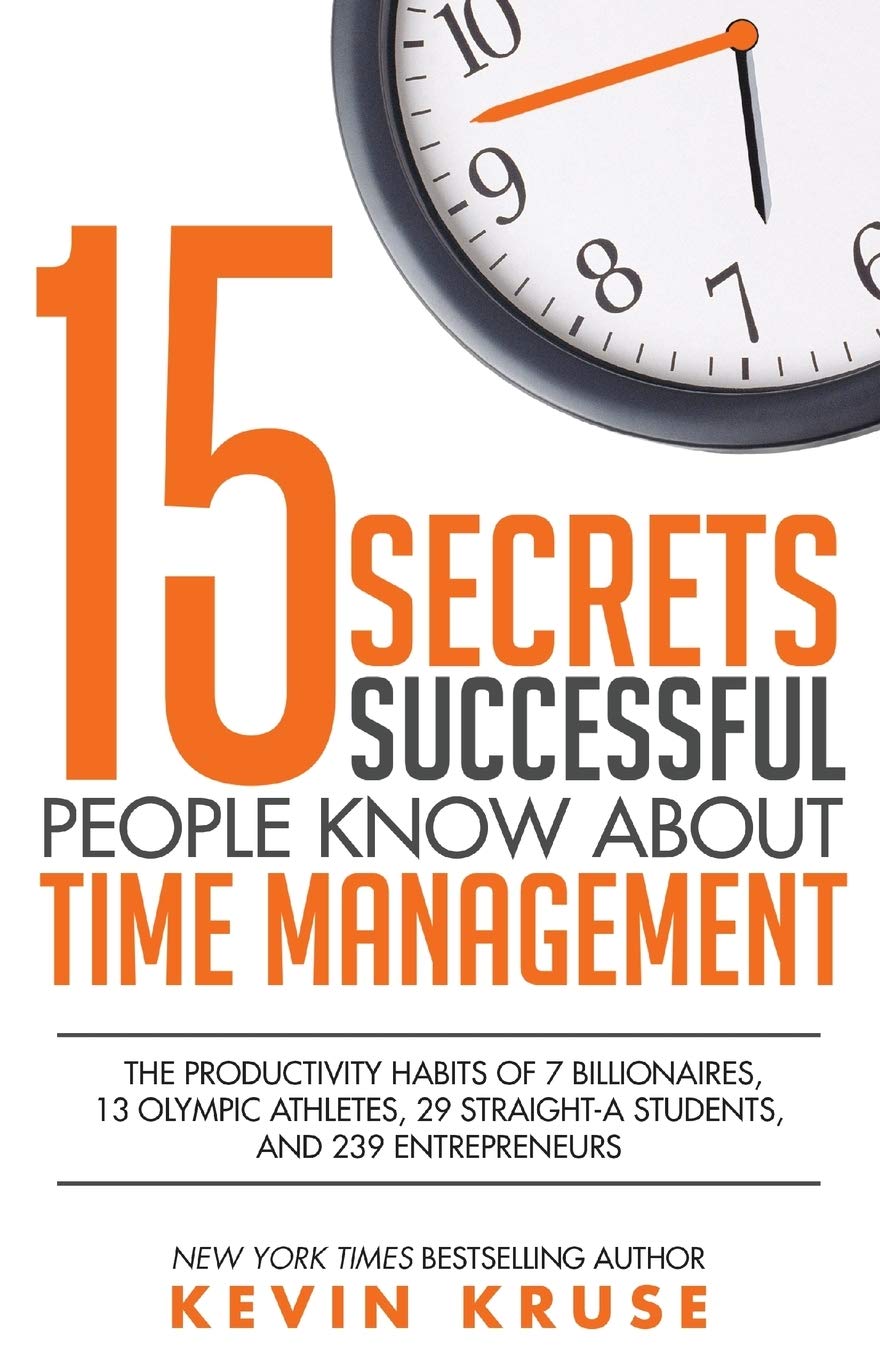In the contemporary era, time robbers are everywhere. Whether it’s your smartphone incessantly notifying you with the latest social media post, a coworker disturbing you during a crucial activity, or the consistent flow of emails, your time is consistently being filched from you, minute by minute, hour by hour. And once that time is gone, you can never retrieve it.
To sustain concentration and ensure these time hijackers don’t gain the upper hand, you must retain some strategies up your sleeve. This book summary will give you a head start.

OVERVIEW PART 1
TIME IS YOUR GREATEST TREASURE AND SHOULD BE USED JUDICIOUSLY.
Have you ever desired to possess an additional hour during the day to read, work out, or spend time with your cherished ones? Well, you can, and there’s no sorcery needed! However, initially, you must grasp the value of time.
This is why the primary tip for managing time is comprehending that time is your most precious resource, and once it slips away, it’s gone forever. A practical way to monitor this valuable resource is by breaking it down. For instance, there are 1,440 minutes in a day, each of which should be utilized wisely.
To serve as a reminder of this truth, the author affixed a poster with “1,440” to his office door. It prompts him of the finite time available each day.
But why consider minutes? Why not contemplate the 86,400 seconds that every day offers?
Well, various daily tasks can truly be completed in a minute, such as executing 30 sit-ups, reading a short poem, or watering a plant. This highlights the importance of minutes in monitoring your time.
Now that you appreciate the preciousness of time, it’s time to commence prioritizing it. This is where the second tip emerges: recognize and prioritize your utmost crucial task, or your core assignment. This is the singular pursuit that will have the most substantial influence on your life or work.
Consider Therese Macan, a professor at the University of Missouri-St Louis. She identified that one of the primary productivity factors is the capability to identify priorities. Thus, pinpointing a core assignment plays a pivotal role in time management.
For example, if a senior executive sets a goal of creating a new application, her core assignment might be to recruit a new programmer. Or the core assignment for a startup CEO could be to formulate an excellent presentation to secure a significant investment. Studies have substantiated that having a daily core assignment, regardless of its nature, leads to heightened levels of satisfaction and enhanced focus.
OVERVIEW PART 2
SWAP YOUR TASK LIST FOR A SCHEDULE TO ACHIEVE MORE WHILE EXPERIENCING LESS STRESS.
Many individuals are burdened by never-ending to-do lists. Evaluate yours. How many of the tasks have been lingering there for weeks, unnecessarily causing you stress?
You likely have a minimum of a few such tasks, and the best approach to address them is by resorting to a classic calendar. Here’s where the third tip comes into effect: replace your task list with your calendar to alleviate the stress from your day.
Research has divulged that on average, 41 percent of items on to-do lists remain incomplete. One reason for this alarming statistic is that the tasks on such lists typically lack an indication of the time required to accomplish them. Consequently, tasks that are more challenging or less significant often remain undone.
This might not pose a significant issue, except for the fact that the unfinished items on your to-do list will inevitably generate considerable stress that could easily be averted. In reality, scholars from Florida State University determined that stress can be circumvented by simply formulating a strategy to finish a task.
The Olympic gymnast Shannon Miller provides a notable illustration. She excelled in spending time with her family, fulfilling her academic responsibilities, preparing for the Olympics, and even conducting media interviews, all by organizing time for essential tasks.
This tactic is acknowledged as time blocking or time boxing, and interestingly, it merely necessitates maintaining a thorough calendar. By doing so, Miller compelled herself to prioritize tasks that would propel her closer to attaining her goal, and to this day, she adheres to a nearly minute-by-minute schedule.
Nonetheless, you will inevitably confront tasks on your calendar that you might not accomplish. In such instances, instead of allowing them to recede into the past, simply reschedule. For instance, if you customarily head to the gym at noon but have a flight to catch at the same time, merely shift your workout to earlier in the day.
OVERVIEW PART 3
SURMOUNT PROCRASTINATION BY ENVISIONING YOUR FUTURE ACTIONS AND COMPREHENDING THERE WILL ALWAYS BE MORE TO ACCOMPLISH.
We’ve all experienced it: an impending critical deadline, and instead of tending to the current project, you find yourself glued to a screen – browsing through social media, texting a friend, or watching your favorite TV series. Procrastination is a real challenge, but fortunately, there are strategies to break free from it and kickstart your productivity.
Here comes the fourth tip: procrastination can be defeated by envisioning your future self.
Ultimately, you’re not procrastinating due to indolence but because you lack adequate motivation. Envisioning your future self can address this issue, and it’s as straightforward as posing two queries: “What satisfaction will I derive from completing this task?” and “What repercussions will I face if I neglect doing it?”
For instance, if your objective is to engage in daily workouts, but you’re struggling to muster the energy, just visualize yourself sporting a conspicuous beer belly and feeling utterly lethargic. This mental exercise will propel you from the couch to the treadmill.
Simultaneously, being candid about the actions your future self will take can aid in achieving your objectives. For instance, if you anticipate succumbing to unhealthy snacks during a break in the future, you can shield yourself by discarding all the junk food in your home. You could even escalate by stocking up on wholesome alternatives like baby carrots and hummus.
From there, proceed to the fifth tip: there will always be more tasks to accomplish; you cannot tackle everything. And this is perfectly acceptable!
Astoundingly, prioritizing and organizing the tasks you desire to undertake holds more significance than simply striking off as many items as achievable from your list. Consider President George W. Bush as an instance. He comprehended that there would perpetually be more to address. Rather than striving to tackle everything, he prioritized reading numerous books since he discovered it to be comforting and enlightening. Consequently, he devoured approximately 95 titles during his tenure!
OVERVIEW PART 4
JOTTING DOWN YOUR IDEAS AND CURTAILING VISITS TO YOUR INBOX WILL UNBURDEN YOUR MIND AND HOIST YOUR PRODUCTION.
Have you ever experienced a brilliant idea while grocery shopping or walking your canine? Wouldn’t it be convenient if instead of straining to recollect it later, you could simply note it down right away?
That’s why theThe sixth hidden truth is to constantly keep a notebook nearby. Scribbling down your musings helps you retain them. Founder of Virgin Group, Sir Richard Branson, states that he would not have erected his business kingdom without his reliable notebook.
He was so dedicated to jotting down his ideas that on one occasion, when struck by a business plan and devoid of a notebook, he penned the thought in his passport! For him, if an idea is not documented, it may vanish forever.
Taking notes manually also bolsters your memory. For example, psychologists Pam Mueller and Daniel Oppenheimer discovered that students who manually transcribed their notes during a TED talk could better recollect the material compared to students who jotted notes on their computers.
Inscribe your thoughts is vital – just as controlling your timetable is crucial, which is where the seventh secret becomes relevant. It advocates refraining from frequently checking your email, as it can result in other individuals dictating how you utilize your time.
In reality, contrary to popular belief, incessantly perusing emails is counterproductive. This is because the anticipation felt while checking your inbox is akin to pulling a slot machine lever. Frequently, you go through your messages and find nothing new. However, occasionally, a new message emerges. This unpredictability is habit-forming, and one begins procrastinating by checking more frequently, hoping for the thrill of getting a message. Evidently, this consumes your time and disrupts your concentration.
A great method to break free from your email shackles is by unsubscribing from newsletters using a service like unroll.me. Alternatively, you can embrace the 321-Zero system. To do this, confine yourself to three email checks per day while endeavoring to clear your inbox in just 21 minutes.
OVERVIEW PART 5
REGAIN COMMAND OVER YOUR TIME BY EVADING MEETINGS AND DECLINING REQUESTS.
If you’ve ever held an office position, you understand the immense tedium that accompanies meetings. However, that’s not the sole downside of meetings. The eighth secret asserts that most meetings are ineffective and should be scheduled as a last resort.
Indeed, a survey in 2015 revealed that 35% of participants deemed weekly status meetings as a waste of time, primarily due to two reasons:
Firstly, in compliance with Parkinson’s law of triviality, meeting attendees often expend a lot of time discussing trivial matters. Secondly, extroverts typically dominate meetings, diminishing the chances of others engaging. Consequently, valuable information may remain undisclosed during such gatherings.
That being said, if a meeting is utterly necessary, opt for a standing session rather than a seated one. This may appear unusual, but researchers at Washington University found that meetings where participants stand foster improved collaboration, reduced attachment to ideas, increased engagement, and more effective issue resolution.
Yahoo CEO, Marissa Mayer, offers another valuable insight: by scheduling meetings in increments of five or ten minutes, she can host up to 70 meetings per week. Had she adhered to the typical 30-minute slot, she would never manage to accomplish this feat.
In essence, regulating the timing of meetings will thwart individuals from encroaching on your time. This is crucial since others will constantly demand things from you, a reality that dovetails nicely with the ninth hidden truth: expedite the achievement of immediate objectives by declining most requests.
Indeed, every time you agree to something, you are effectively rejecting something else. Olympic rower Sara Hendershot exemplifies this well. She adeptly declines social and other commitments, which allowed her to maintain her focus in the lead-up to the 2012 Olympics in Rio, where she secured a spot in the finals.
To top it off, research has uncovered that people who tend to refuse requests for their time are happier and more energetic.
OVERVIEW PART 6
UTILIZE THE 80/20 PRINCIPLE AND CONTEMPLATE A FEW SUBJECTIVE INQUIRIES TO ELEVATE YOUR PROFICIENCY AND SATISFACTION.
At this juncture, you understand the significance of investing your limited time in tasks that yield the most impact. The tenth secret can facilitate this process. It stipulates that by employing the Pareto Principle, you can unearth pathways to success. Here’s what this entails:
In the 1890s, the Italian philosopher and economist Vilfredo Federico Damaso Pareto observed that 20 percent of the pea plants in his garden bear 80 percent of his healthy peapods. This discovery led to the formulation of the 80/20 rule, which can be applied across a variety of domains.
For example, by applying the 80/20 rule to your staff, you might deduce that a significant number of your sales personnel must be terminated since they are the poorest performers. Subsequently, you could channel your efforts towards the remaining 20 percent, who are already responsible for generating 80 percent of your revenue, by rewarding them and providing increased support. This strategy would likely result in an overall sales improvement.
Alternatively, you can employ the 80/20 rule in your personal life by evaluating the tasks you undertake weekly and pinpointing those with the greatest impact.
In addition to this, you could enhance your productivity by critically assessing the tasks at hand. The eleventh secret is devised to aid with this. It dictates that by leveraging your skills and delegating work, you can boost your output. Referring to an experiment in 2013 featured in the Harvard Business Review conducted by professors Julian Birkinshaw and Jordan Cohen, they found that 43% of employees were dissatisfied with their job tasks.
OVERVIEW PART 7
INCORPORATE THEME DAYS AND INSTANTLY RESOLVING SHORT TASKS WILL AMPLIFY YOUR PRODUCTIVITY.
On a standard workday, do you ever encounter difficulties focusing in the office? Many individuals do, and a bit of guidance can make a significant difference. This leads us to the twelfth secret, which recommends categorizing your work into recurring themes each week to enhance your effectiveness.
An exemplary instance is provided by Jack Dorsey, the co-founder of Twitter and founder of Square. He professes that the key to managing both his ventures was to allocate a theme for each day. For instance, Mondays were designated for management tasks; Wednesdays were focused on marketing; and Sundays were reserved for reflection, feedback, and strategizing for the upcoming week.
On the other hand, entrepreneurial coach Dan Sullivan suggests segmenting each week based on three types of days to maintain focus and enthusiasm. The first type is termed a focus day, dedicated to essential activities such as revenue-generating tasks. The second is a buffer day, intended for catching up on emails, returning calls, conducting meetings, delegating tasks, and handling paperwork. Lastly, a free day is set aside for no work, allowing time for relaxation, family activities, and charitable tasks.
Another straightforward approach to enhance your efficiency involves tackling minor tasks.This is the thirteenth hidden truth, advocating for promptly acting on tasks that can be completed in under five minutes and avoiding repeated revisits to the same task.
Take, for instance, the exemplary pupil Nihar Suthar. He promptly finishes brief assignments, steering clear of accumulating a lengthy roster of trivial tasks.
As an example, consider the writer. When his sister Debbie recently sent him an email, he opted to call her back instead of replying via email. By scheduling a call in his calendar, thus conserving the mental effort that would have been spent on remembering to respond, he opted to address this task immediately. If he had decided to add it to a to-do list or kept it in his inbox, he most likely would have forgotten to tend to it.
OVERVIEW PART 8
BOOST YOUR VITALITY LEVEL AND FOCUS THROUGH A MORNING HABIT AND A SIMPLE METHOD.
Imagine rising at six o’clock in the morning, exercising for 45 minutes, and then preparing a nutritious, high-protein breakfast. It may seem challenging, but the fourteenth undisclosed truth elucidates why it is indispensable.
It asserts that allocating the initial hour of each day to a morning regimen will enrich your well-being – mentally, physically, and spiritually. In truth, beginning the day with a workout is an excellent way to stimulate your imaginative faculties.
Contemplate the best-selling author Dan Miller, who kicks off each day by meditating for 30 minutes, followed by a 45-minute workout accompanied by audio programs. He refrains from checking the news or glancing at his phone during this period, dedicating his first hour to affirmative and inspiring encounters. He even attests that his most innovative ideas come to him during this daily “me time.”
Subsequently, you can elevate your vigor and welfare further by having a nourishing breakfast and consuming ample water. This practice holds immense significance for the renowned author and podcast host Shawn Stevenson. He regards energy as pivotal, thus commencing each day with what he terms an inner bath. Essentially, he kickstarts his metabolism by drinking 30 ounces of purified water to eliminate waste.
Indeed, according to the fifteenth undisclosed truth, energy reigns supreme. The truth elucidates that productivity is not about time but about sustaining concentration and energy levels.
That’s why Francesco Cirillo devised the Pomodoro Technique – a strategy engineered to minimize interruptions and elevate productivity. His methodology involves setting a timer for 25 minutes, concentrating fully on a single task for the entire duration, and then taking a five-minute respite before restarting the cycle.
Author Monica Leonelle experienced resounding success with the Pomodoro Technique upon realizing she had no spare hour in the day. Through utilizing the Pomodoro Technique, she revitalized during her breaks, maintaining consistent energy throughout the day and, with the aid of other methods, transformed her writing speed from 600 words per hour to 3,500!
The primary notion of this publication
Highly triumphant individuals regard time as their most valuable asset. By implementing their most efficient life strategies—ranging from prioritizing tasks to increasing your energy and preserving your concentration—you can similarly make the most of your time.


